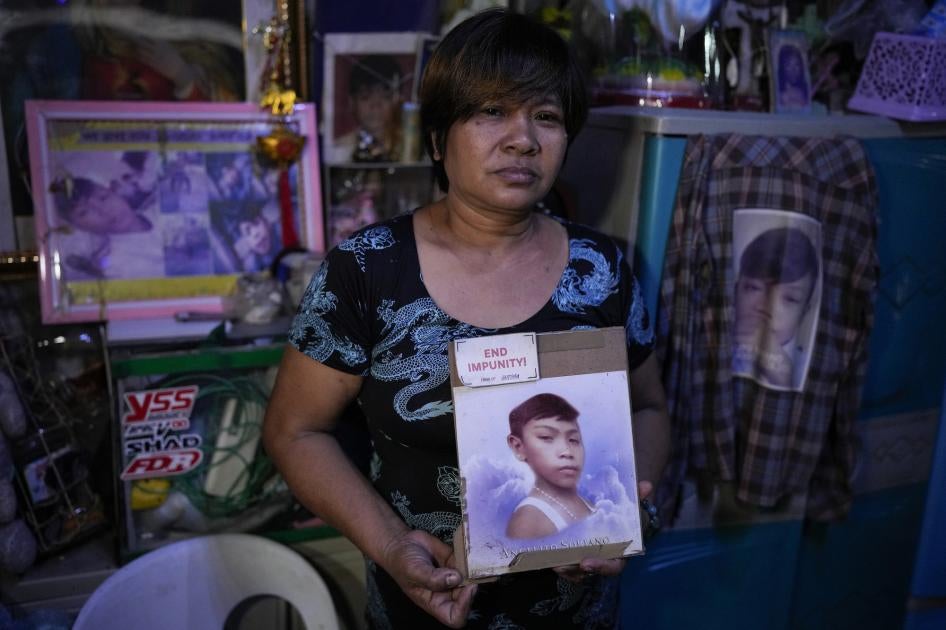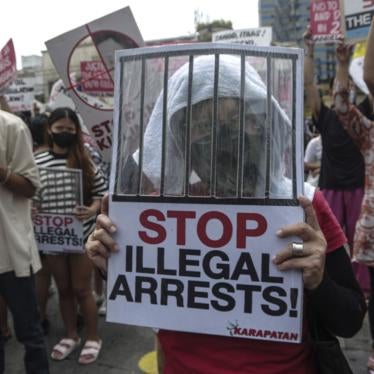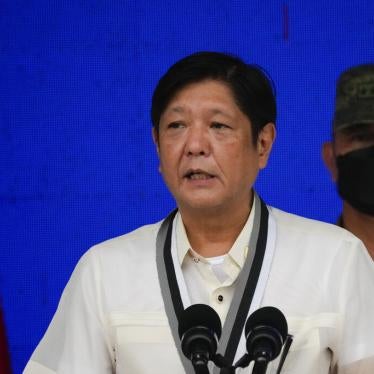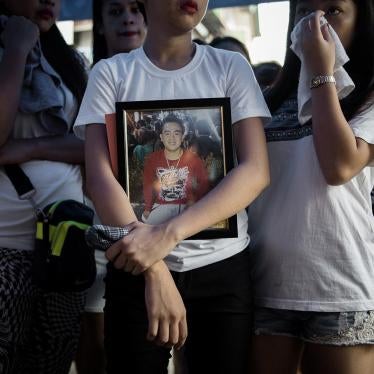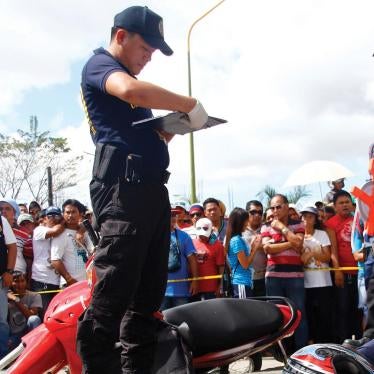The United Nations Office of the High Commissioner for Human Rights (OHCHR) released a report on September 13 calling on the Philippine government to address serious gaps on human rights, particularly regarding accountability for abuses linked to the “war on drugs.” The report highlighted several achievements of the UN and Philippines joint program on human rights, but underscored that impunity for rights violations and police abuses persists.
The Office of the High Commissioner said that it “continued to receive allegations of human rights violations by members of the Philippine National Police,” adding that “deaths continue to be reported in anti-illegal drug operations.” Since the “drug war” began in 2016, the government has itself reported that police killed more than 6,200 people in anti-drug operations, while OHCHR previously put the figure at more than 8,600. Domestic human rights groups estimate the “drug war” toll, including killings by unidentified gunmen, at three times the government figure. Virtually all of these killings remain uninvestigated.
The Office of the High Commissioner also said it “continued to receive reports of killings, arbitrary detention, physical and legal intimidation” against human rights defenders. It said these individuals are often targets of “red-tagging,” the longtime government practice of accusing activists of supporting the communist insurgency, putting them at risk of attack and arbitrary arrest.
The OHCHR report corroborated human rights groups’ findings that abuses have persisted even since the UN joint program started more than a year ago. Last week, Human Rights Watch submitted a policy paper to members of the UN Human Rights Council supporting a resolution to continue its rights monitoring and reporting mandate on the Philippines.
The OHCHR cited key obstacles to enforcing the UN joint program, including “limited oversight of human rights investigations, inadequate investigation capacity and inter-agency cooperation, limited forensic capacity and protracted judicial processes.” It also noted “inadequate victim and witness support and protection, and fear of reprisals” that undermine victims’ engagement in the program. Among the office’s recommendations is the need for “further progress on accountability.”
What’s clear from the report is that the UN’s work on the Philippines is far from done. The Human Rights Council should adopt OHCHR’s recommendation that the high commissioner’s office continue to monitor and regularly report on the country’s rights situation. There’s no short-term solution to making real progress on accountability and providing justice for people in the Philippines.

